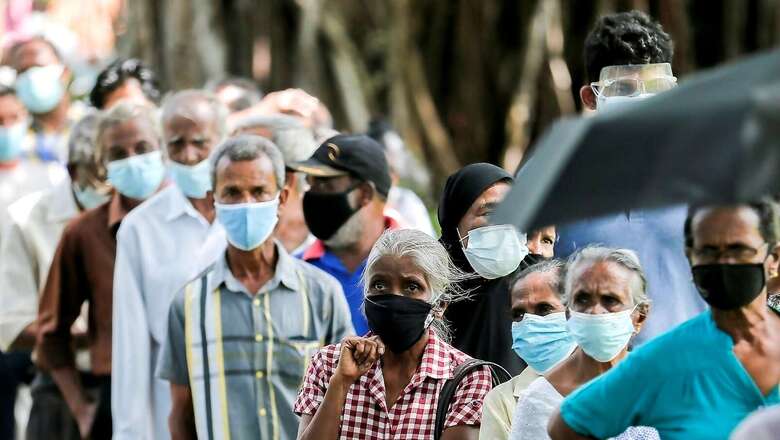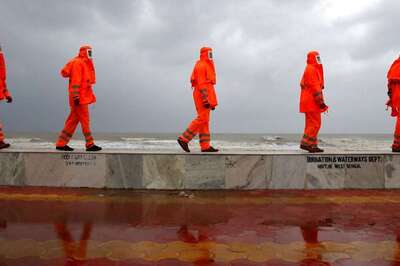
views
As the arrival of monsoon raises worries of infectious diseases like malaria and dengue, the concerns rise amid the COVID-19 pandemic as their symptoms tend to be common.
The cases of malaria and dengue, both vector borne diseases that spread through mosquito bites, rise during the monsoon season. The spread of these diseases lead to rising worries among the doctors due to the overlapping symptoms. Here’s how you can differentiate between the three diseases.
What Causes COVID-19, Dengue and Malaria:
COVID-19 is a respiratory illness spread via infected droplets carrying the SARS-COV-2 virus. It could spread through airborne or direct droplet-transmission.
Dengue and Malaria are tropical illnesses that occur mostly during season change. The virus responsible for the disease is called dengue virus (DENV) and it is spread by bites of the Aedes mosquito. Meanwhile, malaria is transmitted through the parasite called Plasmodium, spread through the bite of the female Anopheles mosquito.
Overlapping Symptoms of COVID-19, Dengue and Malaria:
All the three diseases are caused by virus and lead to similar symptoms which are respiratory in nature and cause inflammation.
COVID-19 may present symptoms including rising fever, chills, cough, cold, sore throat, difficulty breathing, headache, myalgia, intense fatigue and weakness- all of which could be present with dengue and malaria in different ways.
Symptoms of dengue include extremely high fever, severe headache, joint and muscle aches and can also have gastrointestinal symptoms like nausea, stomach ache and diarrhoea. There are four dengue virus serotypes, meaning a person can get infected from the virus as many as four times. As the disease progresses, patients can also suffer from respiratory distress, bleeding from the nose and gums and have a rapid drop in blood pressure leading to shock.
Symptoms of Malaria also include fever, headaches and chills. If not treated within 24 hours, it can progress to severe illness and lead to death. Children with severe malaria may suffer severe anaemia, respiratory distress in relation to metabolic acidosis, cerebral malaria.
How to Differentiate Covid-19 from Dengue, Malaria?
In order to be able to differentiate between the three diseases, these should be kept in mind:
– Loss of smell and taste may only occur in case of COVID-19.
– Some primary symptoms of COVID-19, including upper respiratory tract and signs of inflammation such as cough, change in voice, throat irritation may not occur in dengue and malaria.
– Gastrointestinal symptoms, such as nausea and diarrhoea may not always occur in COVID-19 patients.
– Shortness of breath, chest pain or breathing issues do not typically present with dengue and malaria
– Dengue and malaria often start with the onset of a headache or weakness, which may not always be the case if you have been exposed to COVID-19.
– The incubation period is different: during COVID-19 symptoms can show up in as little as 2-3 days post contraction while malaria and dengue have longer onset period and may even sometimes occur as late as 22-25 days.
– Both dengue and malaria aren’t exactly contagious among people while COVID-19 is extremely contagious.
Read all the Latest News, Breaking News and Assembly Elections Live Updates here.




















Comments
0 comment